No one can accuse the BBC of taking viewers for granted when it devotes more than four hours of screen time to two full-length films and one mini-drama from Stephen Poliakoff, one of the few writers in TV with the freedom to work outside formulaic drama.
In BBC1’s Joe’s Palace, reclusive billionaire Elliot (Michael Gambon) has inherited an empty mansion from his father, the origins of whose wealth are unknown. The house recalls a house in London from Poliakoff’s childhood. “My father often pointed it out to me but I never saw anyone go in or out. It was a building suspended in time,” he says.
BBC2’s Capturing Mary is set in the same house and stars Maggie Smith as Mary, who looks back to the 1950s when her promising writing career was sabotaged. The two films have one character in common - Joe, played by newcomer Danny Lee Wynter, the house’s concierge, whose youthful hope tempers the despair of Elliot and Mary.
The young Mary is played by Ruth Wilson, who also stars in a 45-minute drama, A Real Summer, written by Poliakoff for an extended edition of BBC2’s The Culture Show. A Real Summer is written for just one actor - Wilson - and charts the development of an unexpected relationship between Mary and a young female aristocrat, Geraldine, both played by Wilson.
Joe’s Palace, says Poliakoff, revisits his recurring theme of “the past impacting on the present”. Like most of his recent work, it is also optimistic. “Most of my work has a strong, almost cloudburst of humanism at the end,” says the writer/director.
Capturing Mary is darker, set in the “vicious” 1950s. “The older generation had absolute power over the young; it was an incredibly hierarchical society. Young people were very vulnerable to their whims and lives could be shattered,” says Poliakoff.
The rich look of Poliakoff’s recent work is a world away from his gritty dramas of the late 1970s. “I wrote a lot of jagged urban work for the theatre and television,” he recalls. “I used to get asked a lot why a middle-class, ex-public schoolboy like me is writing about this, which is not a question that people ask me any more.”
Poliakoff locates Joe’s Palace and Capturing Mary within his cycle of TV dramas that started with 1999’s Shooting the Past. These films, he says, are first person pieces. “Joe’s Palace is seen almost exclusively through the eyes of a teenage boy and Capturing Mary through Maggie or Maggie’s younger self. Therefore, the visuals are always subjective,” he explains.
“Visuals should be rich because that’s how we experience life as intelligent beings. I’m not a documentary or social realist writer/director, I’m trying to make films that are involving and take the audience on a vivid journey.”
Colours are important to Poliakoff, as the fabulous frocks worn by his leading ladies in Joe’s Palace and Capturing Mary show. “He has this landscape which is very colourful. As a costume designer it’s a delight because he really cares about the design content on every level,” says Annie Symons, who also worked on Poliakoff’s Friends and Crocodiles and Gideon’s Daughter.
“Stephen loves vibrant colour. He will often write notes like ‘she appears in a red or a coral pink dress’ in the script’. To him it’s a symbolic thing. He describes character through the clothes,” says Symons.
But Poliakoff maintains his extravagant use of colour is realistic: “Life is full of extraordinary images. I think one has to be bold to reflect reality.”
Joe’s Palace and Capturing Mary look sumptuous, which may hint that the BBC’s coffers were ransacked to make them. Poliakoff is quick to nail this suggestion. “I’ve made four-and- a-half hours of television and the BBC’s investment is £3.4 million [out of a total budget of £4.5 million] which makes it, per minute, cheaper than episodes of Hustle,” he says.
“The fact that we shot Joe’s Palace and Capturing Mary together in a shared location made it viable and meant we could get all the money on the screen,” insists producer Deborah Jones.
“We built in as much rehearsal as possible and that, of course, saves you time on the shoot. The rehearsal time is vital and the actors really relished it because they don’t usually have that luxury,” she adds.
“I write these big parts and I don’t think actors can be expected to just turn up and do them,” says Poliakoff. “It’s a way of forging relationships with actors and pushing them, hopefully, to be at the top end of their talent.”
Since making Shooting the Past, Poliakoff says he has “deliberately attempted to slow down television”. Both Joe’s Palace and Capturing Mary are long, ruminative films that require viewers to immerse themselves in Poliakoff’s world.
“I hope they’re touched and haunted by them,” he says. “Television is such a democratic medium. That is the great privilege of television drama: you can potentially touch so many people’s imaginations.”
TX: Poliakoff on the BBC
Joe’s Palace: BBC1, 9.00pm,
4 November, 110 minutes
Capturing Mary: BBC2, 9.00pm,
12 November, 100 minutes
Producer: Talkback Thames for BBC/HBO
Commissioning editor:
Jane Tranter
Writer/director: Stephen Poliakoff
Producer: Deborah Jones
Executive producers:
Joanna Beresford, Lorraine Heggessey (Talkback Thames); Nicolas Brown (BBC),
Stephen Poliakoff
DoP: Danny Cohen
Music: Adrian Johnston
Production designer: Mark Leese
Editors: Clare Douglas, Tom Kinnersly
Principal cast: Michael Gambon, Maggie Smith, Danny Lee Wynter, Ruth Wilson, Rupert Penry-Jones, Kelly Reilly, Rebecca Hall, David Walliams.
A Real Summer in The Culture Show - Stephen Poliakoff
BBC2, 8.30pm, 10 November,
45 minutes
Writer/director: Stephen Poliakoff
Executive producer: Eddie Morgan
DoP: Danny Cohen
Music: Adrian Johnston
Production designer: Madelaine Leech
Editor: Tom Kinnersly








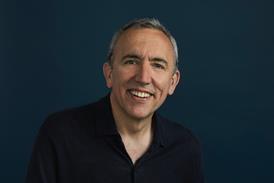
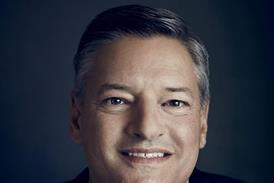










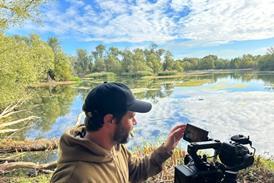
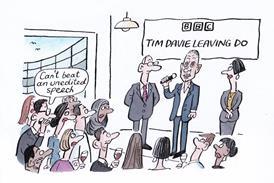
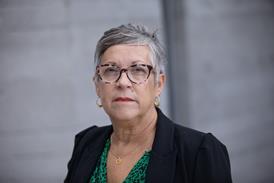



No comments yet